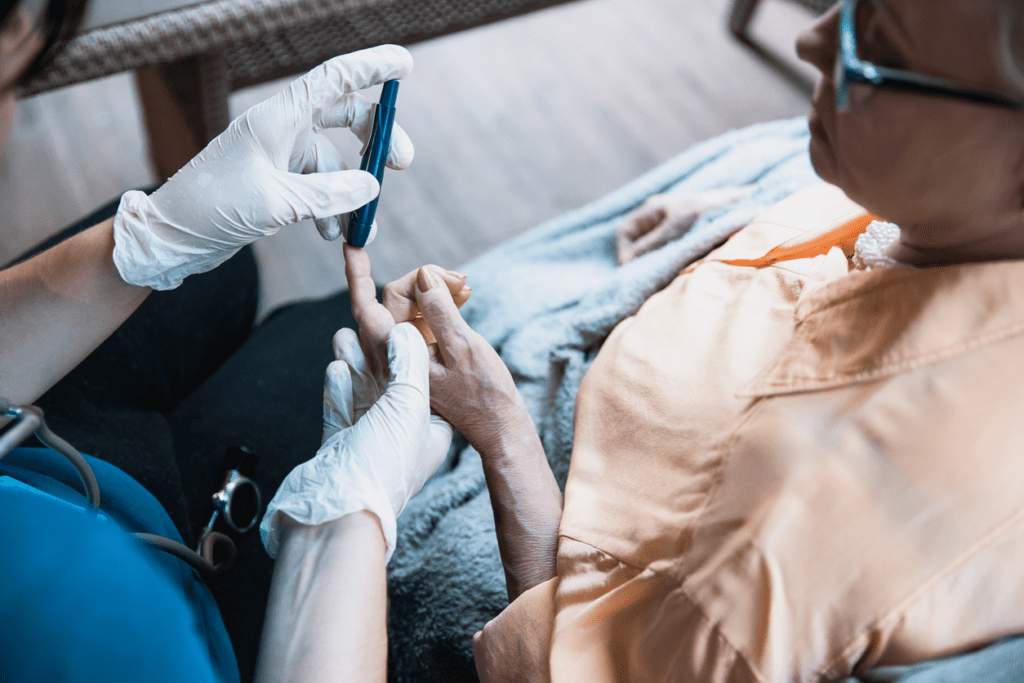
The hemoglobin A1C (HbA1c) blood test is important for diagnosing and monitoring diabetes, and for assessing how well diabetes is controlled.
Have you ever had your doctor order a blood test called hemoglobin A1C (HbA1C) to check for diabetes and wondered how it works? Today we will delve into the topic to understand this test better and find out ways in which it can help you and your doctors assess how well your blood sugars are controlled.
What is hemoglobin?
Hemoglobin is a protein found in the red blood cells (RBC) that circulate in your blood. Its main function is to act as a carrier for oxygen between the lungs and the rest of your body. A small amount of hemoglobin ends up bound to glucose (blood sugar); this is referred to as glycated hemoglobin. And HbA1C is a form of glycated hemoglobin. If your blood sugar levels often run high, then the proportion of hemoglobin bound to glucose increases.
Because your RBCs have a lifespan of about three months, looking at this HbA1C level can help doctors understand what your sugar levels have been like in that period. This is particularly important because unlike a simple blood glucose test that can vary with the timing and content of your most recent meal, HbA1C reflects the average sugar level in the past three months. Therefore, it is easier to interpret and eliminates the need for you to be fasting at the time of check.
Understanding HbA1C levels
An HbA1C level 6.5 percent or higher is indicative of diabetes, and levels 5.7 to 6.4 percent are indicative of pre-diabetes. In addition to HbA1C, it is also possible to report the estimated average blood sugar over the past three months. The American Diabetes Association (ADA) recommends routine checking of HbA1C in all patients with both type 1 and type 2 diabetes to document sugar control and to adjust medications.
This is typically done every three to six months in most patients and can be done using point of care testing.
Community-based HbA1C screening
Primary.Health partners with public health organizations and communities to offer low- and no-cost neighborhood HbA1c tests and other screenings. Community-based screenings can help improve health for populations that may face barriers to care, educate community members about diabetes and other health issues, and connect them with appropriate clinical care.
Contact us today and take that first step toward improving the health of your community: call 1-855-970-3223 or email sales@primary.health.
Disclaimer: This blog content and linked materials are not intended as individual medical advice, diagnosis or treatment, and should not be considered as such. Any readers with medical concerns should contact a licensed healthcare provider. This blog is provided for informational purposes only.
